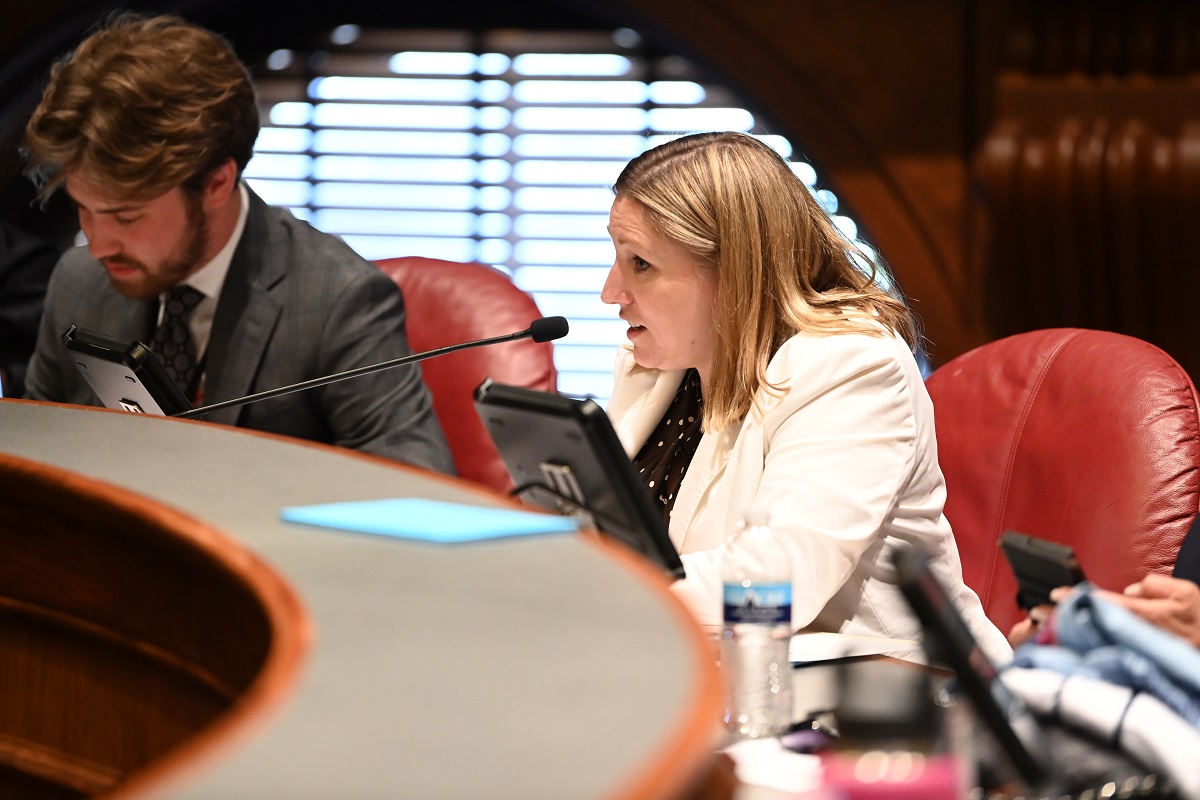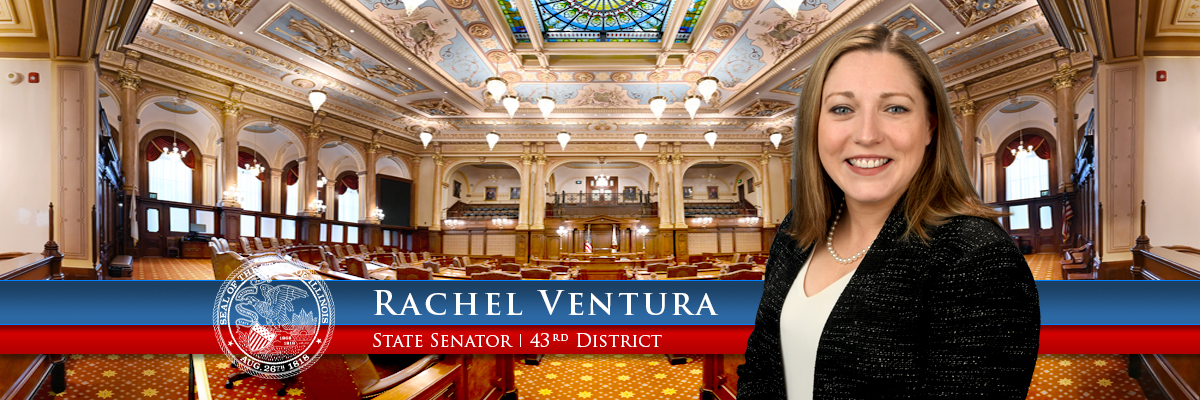
SPRINGFIELD – As Illinois continues to face a shortage of mental and behavioral health professionals, State Senator Rachel Ventura is spearheading a series of legislative efforts with State Representatives Nabeela Syed and Hoan Huynh to improve licensure processes and expand educational opportunities in the health care field.
To address workforce gaps, Ventura and Syed advanced House Bill 3487, which passed the Senate Licensed Activities Committee on Wednesday. The bill requires the Illinois Department of Financial and Professional Regulation to request voluntary demographic and employment data — including primary language, anticipated retirement year and ZIP code — when individuals apply for or renew behavioral health licenses. The goal is to generate more accurate data to better understand and address service gaps across Illinois.
“Our state’s rural areas continue to suffer due to a lack of mental health professionals,” said Ventura (D-Joliet). “Accurate and recent data can greatly assist in addressing the behavioral health care workforce needs we have in this state. When we know the totality of the situation, we can come up with better solutions, such as grants or improved training programs to help this essential field.”
"The shortage of social workers, counselors, therapists and other caregivers that Illinois' mental health community has had to make up for — and Illinois mental health patients have had to live with — demands a strong response," said Syed (D-Inverness). "Without data, we can't make forward progress, and currently there is simply not enough information on behavioral health practitioners to accurately craft new approaches. I'm proud to join my colleagues in the Senate to work to correct that and ensure Illinoisans get the care they need."
Ventura and Syed also introduced House Bill 3373, which passed out of the same committee. The legislation allows clinical psychology graduates to take their initial licensing exam prior to completing two years of postdoctoral supervised experience, streamlining the path to practice.
“Life is unpredictable, and the job market can be challenging,” said Ventura. “This bill allows students to complete the educational portion of required exams even if they face delays in securing a training residency.”
"By allowing clinical psychology students to begin their examinations earlier, we are streamlining the licensing process and getting qualified mental health professionals into the workforce sooner," said Syed. "Our communities deserve reliable and affordable mental health care. Removing needless obstacles and inefficiencies during licensing is going to help make that happen."
In partnership with Representative Huynh, Ventura also led the passage of House Bill 3850, which adds simulation training as an approved form of continuing education for licensed health care professionals. The bill aims to modernize professional education and help retain health care workers across Illinois.
“As new and improved technologies continue to shape the medical field, simulation training offers an untapped opportunity to provide continuing education to medical students,” said Ventura. “Allowing this type of training expands cutting-edge educational resources.”
"Throughout the state and nation, we have a profound shortage of health care workers — from CNAs to doctors," said Huynh (D-Chicago). "Cutting red tape and offering new pathways to fulfill continuing education requirements will help more professionals stay in the field and continue to deliver the care our communities need."
All three bills move to the full Senate for further consideration.






